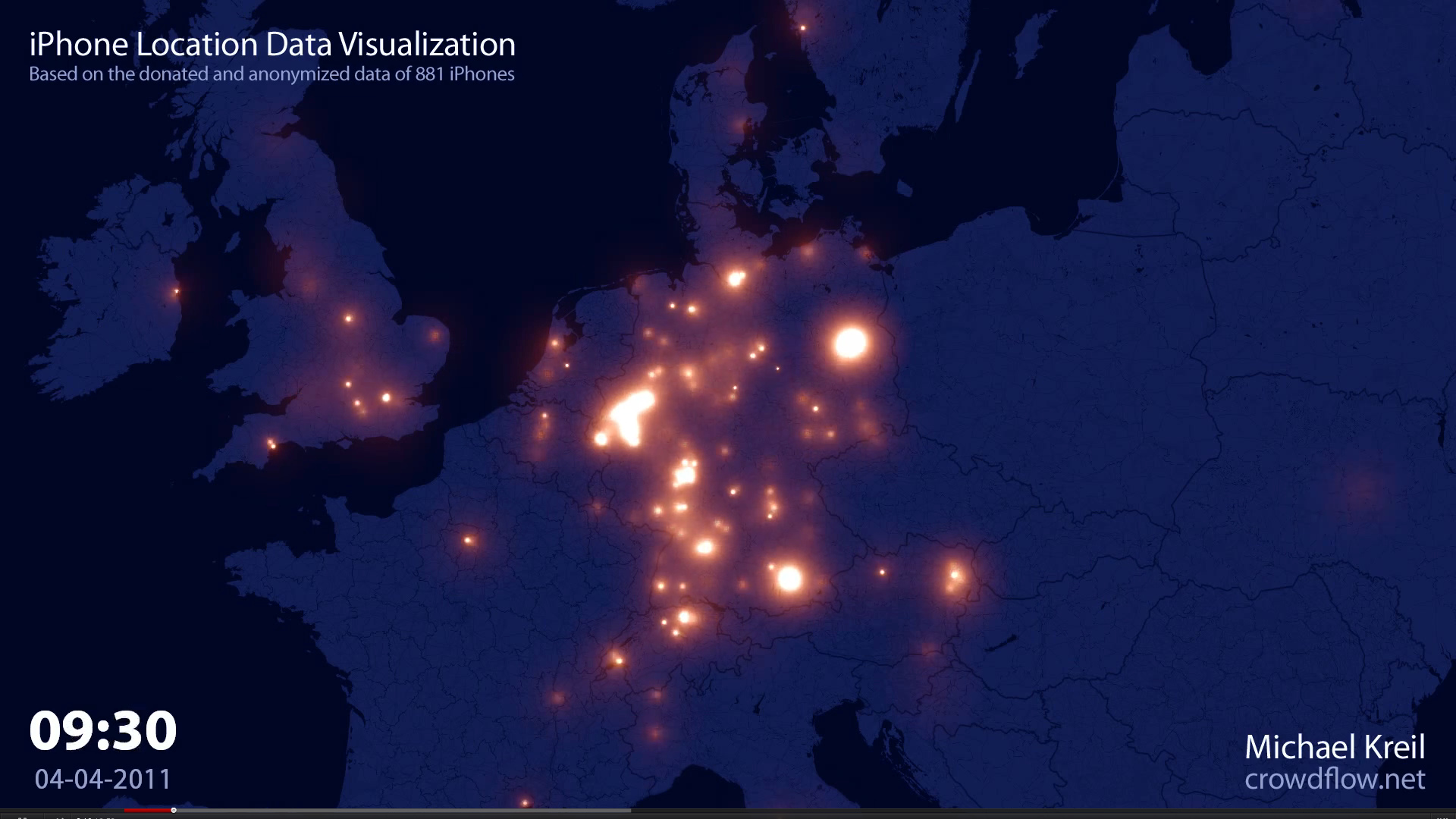Across the western world, a new form of terrorism is breeding. It strikes fear into citizens, it attempts to change civilization as we know it, and it attacks and assaults people on a daily basis. It’s name? “Anti-terrorism.”
This piece was originally conceived and written July 18th, but with events in Oslo and Utøya, and after talking things over with Rick, I’ve delayed things slightly, to enable passions to cool, and for things to be put into perspective.
To understand what terrorism ‘is’, we need an appropriate definition. One of the best is actually from the US Department Of Defense, which puts it as
“The unlawful use of violence or threat of violence to instill fear and coerce governments or societies. Terrorism is often motivated by religious, political, or other ideological beliefs and committed in the pursuit of goals that are usually political.”
(Source: Joint Pub 3-07.2, Antiterrorism, (24 November 2010))
Broken down simply, it can be put as “People will try and change the way people live, by intimidation, to match their beliefs”. It’s important to note that, unlike many definitions, this one recognises that the THREAT of violence is enough, those that only allow for actual violence forget that many (but not all) of the IRA’s bomb attacks in the 1990s didn’t harm anyone, as the IRA phoned in coded warnings to evacuate the areas. It also makes clear that whatever motivation is behind it, the goal is political. (The ‘unlawful’ at the start is intriguing though, since violence, or the threat of violence is, by custom, unlawful)
In the US, everything has become about ‘the threat of terrorism’. A massive Federal agency (the TSA) was created, along with a cabinet post. Police got new powers, telephone companies started monitoring phone communications. There are roving checkpoints now, to ‘scan people’ for ‘safety’, and there are ‘prisons‘ where someone can be kidnapped anywhere in the world, and imprisoned indefinitely, with no trial. They all have one thing in common – their justification.
“The Patriot Act provisions we are extending are vital for America’s national security and for the prevention of terrorism. They give law enforcement the authority and tools needed to track suspects and known terrorists in order to better protect our nation against those who seek to do harm to our families, our communities and those serving in our armed forces at home and abroad.”
That’s a quote from Representative Shelly Berkley (D-NV1) in May over extending Patriot Act provisions (there’s many others just like it). If we break it down, though, we get:
“We’re going to get people attacking us (threat of violence), so we need to grant these powers (political aim), despite barely being used in 10 years, because they’re essential (belief)”
Her statement qualifies as terrorism.
Terrorism can’t be fought with terrorism. Humiliating old ladies, and groping kids isn’t going to do it, certainly not by saying ‘we have to do this, else you’ll die’. When they DIDN’T do all this stuff, 10 or more years ago, people weren’t dying all the time. At least, not on aircraft. In fact, in the US, you’re more than 70x more likely to be ‘murdered’ than die in a terrorist attack, which is only going to grow as police forces across the US are having their budgets cut, while the TSA now has a budget of over $8Billion.
So, what have we got for that? Well, one study (PDF) found that the TSA led to 129 road deaths between October-December 2002, as people avoided the TSA by driving. That’s on top of 3000-month average road deaths (or a 9/11 ever single month). Over 500 TSA agents have been fired or suspended for stealing from passenger’s baggage in the last 10 years, yes only one was ever charged, and then only because he was caught by an airline employee. The TSA doesn’t even pass on reports of baggage theft to the police – it’s against policy even – which took a news investigation to find out. It’s not their job to investigate thefts, they may claim, but if items can be stolen from luggage, it’s easy to place items in the same way.
So what about their stated aim? To prevent hijackings by detecting bombs and weapons? Well, they’re bad at that too, failing the vast majority of tests, and having to cheat on others to pass. So, since we’ve discounted their ‘claimed’ purpose, what does that leave us with? It leaves us with a Federal Agency, that has no accountability, does not have to follow the law, and can do pretty much anything as long as they claim they’re ‘trying to prevent terrorists killing people‘.
That sounds a lot like terrorism to me!
It’s not just the US though. The UK has also adopted such measures, despite terrorist activity being at a low in recent decades. Some months in the 90’s there were a dozen separate terrorist attacks (bombs, sniper attacks, mortars, etc.), compared to a half dozen in the last 10 years (including some ‘bombs’ which were chemically impossible of exploding), and yet there has been a surge in ‘Terrorist legislation’, detentions and actions, including the shooting of an unarmed man by police, for which, again, no disciplinary action was taken. In fact, in a number of these cases, 19th Century laws were used to prosecute (usually the Explosive Substances Act 1883), undermining the need for terrorist legislation.
So what should we do instead? Well, that’s a question for Part 2.







Well said. Anti-terrorism (the latest kind) is all about instilling fear.
It’s easy to convince people that invasive anti-terrorism measures are needed because it falls in line with the faulty but all too common logic of governments: “Let’s scare people into being good.”
It doesn’t matter if the methods are ineffective. So long as they look intimidating and expensive terrorists will be deterred (right.)
All that ends up happening is good people getting scared. But that’s okay because scaring people is the whole point.
But of course “What should we do instead?” is the real question, so I’ll be very interested to see what you have to say in part 2…
I googled…
What is the opposite of terrorism?
No words found.
I think a new word is needed!
That’s a good question, I’ll have to think on it. Maybe you’re right, we DO need a new word.
How about “satyagraha”, as used by Gandhi for the use of nonviolent methods to achieve political goals?
http://en.wikipedia.org/wiki/Satyagraha
Maybe no word exists because such a thing doesn’t exist. If the response to terrorism is a form of terrorism itself, how can we recognize its true opposite? What would a more reasonable response look like? What would it be called? I have no idea because in my lifetime, where I live I’ve never seen (or maybe just never payed attention to) anything other than the anti-terrorism described here.
So do we need a new word, or do we need a new thing to take on that word first?
Pretty sure they already have an opposite word to terrorism: Peace.
I’m not sure it’s exactly the opposite, Travis, it’s certainly a ‘lack of’, but it’s not an ‘opposite of’.
Peace is basically ‘no conflicts’, while the opposite of terrorism, is the active dispelling of fear for political goals, and ‘peace’ just doesn’t seem to fit that.
But people see peace as the end not the means. But it’s the means that we have to live with.
So we promote the erosion of personal rights, not to mention war, illegal detention, and torture, all in the hopes that it will lead to peace. In other words, it’s not terrorism if the end goal is a peaceful society. BS, of course.
The opposite or one opposite of terrorism is perhaps consensus-making – trying to get the different beliefs to co-exist. Like the concept of religious freedom.
One example is the English Glorious Revolution 1688 when Whigs (liberals/radicals) and Tories (conservatives/reactionaries) made a compromise. One result was the “Bill of Rights”.
I believe the word “unlawful” is there to invalidate interpretations like yours. It’s legal for soldiers and police to use violence under certain conditions. I assume this applies to the TSA too. Since government agencies supposedly never overstep their authority, their use of violence is supposedly lawful and therefore not terrorism.
As for the politicians, they are of course the good guys, so their use of threats of violence must of couse be lawful and therefore not terrorism, right?
Someone probably said “Wait a minute, this proposed definition would define our soldiers overseas as terrorists. We can’t have that. Let’s insert the word “unlawful” to make it clear that it’s the bad guys who are terrorists and not us.
Your reasoning, of course, pokes even bigger holes in the definition of “Unlawful Combatant” as put forth by the US…
It’s hard to imagine the term still holds together and is in use.
OK, so you can use a shoehorn and force the definition of terrorism back on the military-security-snooping-complex. But you don’t win the argument by trying to label TSA airport Security Theater as “terrorism”. Stretched extreme definitions are the hallmark of extremists (For example, “anyone who eats meat, fish or eggs is a murder”).
If you want to be credible, why not use correct labels such as: the tendencies towards a totalitarian fascist surveillance police state.
[…] the first part, we identified that terrorism is widespread, but in the guise of ‘anti-terrorism’. In […]
I found the word Cheerism on urban dictionary.
http://www.urbandictionary.com/define.php?term=cheerism
[…] piece was first published at Falkvinge.net and is released under a CC0 […]
[…] the first part, we identified that terrorism is widespread, but in the guise of ‘anti-terrorism’. In […]